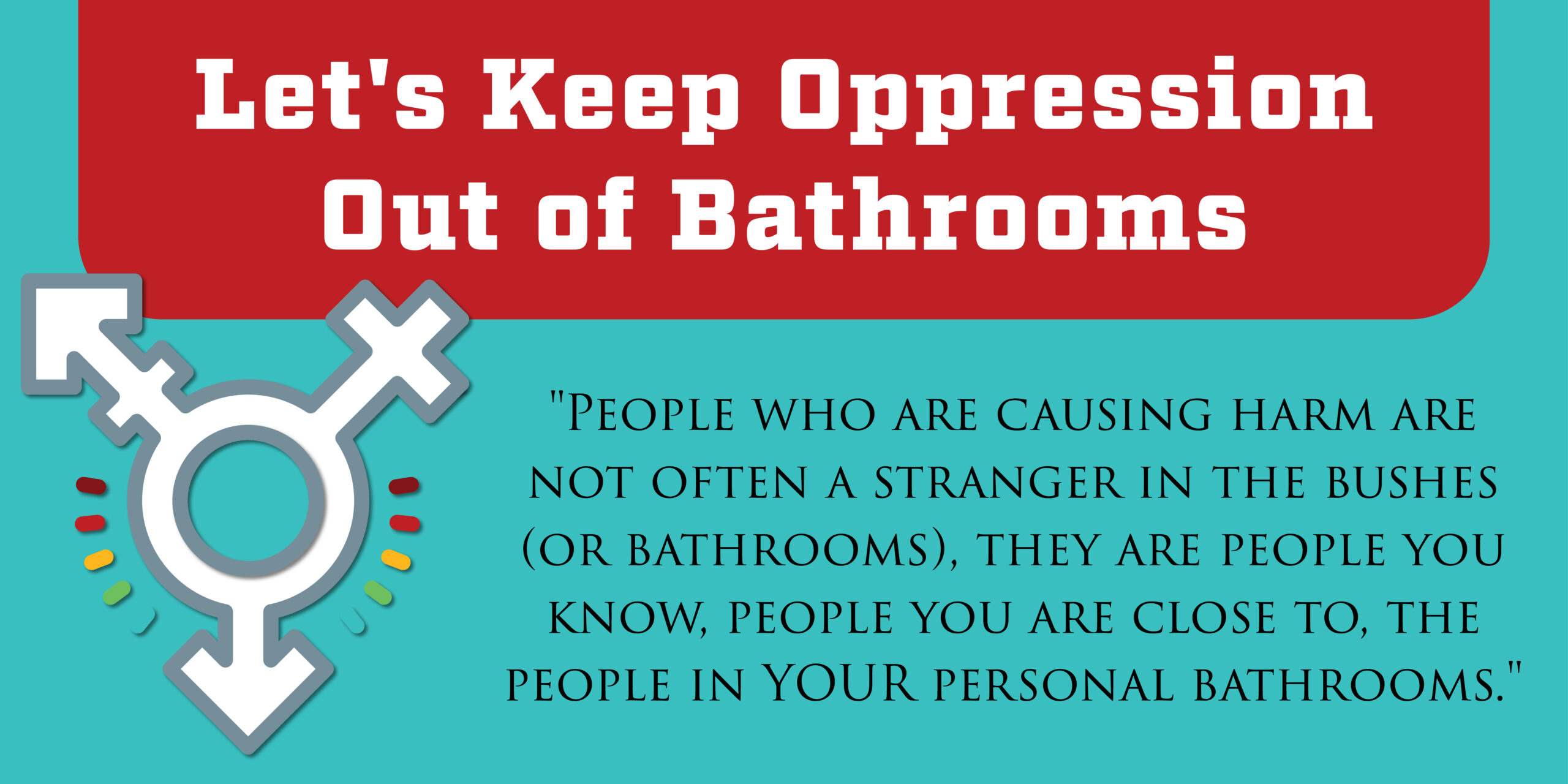
By Whitney Hills, Associate Director of Education
At the McCluskey Center for Violence Prevention, we use education and research as a means of primary prevention in ending sexual violence among college students. Primary prevention means stopping harm before it happens in the first place. Through education, we know that all forms of violence, including sexual violence, are rooted in power. Yes, we can all cause harm and we also know that those who are most likely to cause harm hurt those who have been historically marginalized: Women of Color, trans and gender non-conforming people, and people with disabilities. Knowing this information, I was very confused about the passing of HB 257 Sex-Based Designations for Privacy, Anti-Bullying, and Women’s Opportunities because it contradicts what we know about people who cause harm.
HB 257 bill uses language such as protection and equality of women, yet what the bill actually does is remove access to bathrooms in government spaces for people who are transgender, gender nonconforming, and non-binary. When our local government officials support and pass bills such as HB 257, they normalize violence towards trans and gender non-conforming people. States that have passed bills denying resources and the existence of trans and gender nonconforming people have already led to an increase in hate crimes against LGBTQ+ people. This begs the question, who is actually causing harm?
The government and media have historically used narratives of instability and violence to create fear of lesbian, gay, bisexual, and transgender (LGBT) people to justify criminalization of LGBT people. Following this tradition, legislators used a narrative to incite fear to pass HB 257. Representative Kera Birkeland, who wrote HB 257, shared false information to gain support claiming that the bill is to protect women in restrooms and making unfounded claims that transwomen are using their identities to cause harm to women in restrooms. Using X, Birkeland continued with misinformation and rape myths surrounding sexual violence as justification to pass HB 257, “Let’s be clear, sexual assault knows no boundaries. Keeping men from women’s spaces is appropriate and a much needed boundary.” This tweet falsely implies that transgender people are inherently violent, sexual violence is an inherent experience for women and, creating laws to regulate bathroom use will somehow end violence or in this situation sexual violence
Research about sexual violence on college campuses is very clear that 1 in 7 college men engage in behavior that meets the legal definition of sexual assault. Those who cause harm overwhelmingly target peers that have less social power: women of color, trans people, queer people, people with physical and mental disabilities. While the research is still limited, scholars have identified consistent characteristics of people who are likely to cause harm: those who have experienced harm, attitudes of entitlement, peer groups that support sexual aggressive behaviors, and hostility towards women and other marginalized groups. Regardless of the context based on this information alone, we can gather that transgender, non-binary, and gender nonconforming people are more likely to be experiencing harm, not causing harm.
Bringing those who cause harm into the conversation when talking about sexual violence contradicts how we have all been socialized to think about sexual harm. People who are causing harm are not often a stranger in the bushes (or bathrooms), they are people you know, people you are close to, the people in YOUR personal bathrooms. There is no evidence, nor has any formal research been done that even suggests a rise in violence within restrooms, let alone violence caused by transgender and non-binary people using a bathroom that aligns with their gender.
The most commonly cited protective factor of not causing harm is empathy. If we as a society truly care about ending violence of any kind we need to start at the root– power and oppression. Those who hold societal power are the most likely to cause harm. Failure to address larger societal issues leads to individuals causing hate in the name of racism, sexism, homophobia..the list goes on. If we want to live in a society where we do not have to worry about violence, we need to consider how we as individuals treat one another. Laws will not lead to a society that we feel safe in; however, everyday actions of empathy and cultural changes rooted in care will lead to safety.
